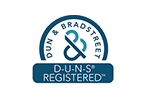Pay Down Debt or Start a Savings: Which Should You Prioritize
Getting a little extra money in your pocket is always a great feeling. Whether you’re getting a nice holiday bonus, a surprise birthday check from a family member, or just stumbled upon a way to get a little additional cash, every bit can make a huge difference in your debt relief plan. Those extra funds are great for paying down debt. If you are trying to decide whether to do that or put the money into savings, we are here to help you figure it out.
High Interest: Pay Down
If you are wondering how to pay off debt quickly, the answer is to get rid of as much interest as possible. Extra money should always go toward paying off the highest debts with the highest interest rates to help you save money over time. If you get an extra $100 for example, it will make a bigger difference on your $3,000 credit card debt with 20% interest than in your savings account.
Low Interest: Save
On the other hand, if you have low interest on an account with a low balance, the best thing you can do is save your money. In this scenario, you likely have put debt relief strategies to good use and are close to paying off your outstanding balances. Unless the extra bit of cash will completely eliminate your outstanding balance, it is a great opportunity to start building up your emergency fund or save up for a special item or a trip to reward your good financial decisions!
Multiple Debt Accounts: Pay Down
For those who still have multiple forms of debt looming over them, paying down debt it the best choice when you get some extra money. Take a look at your budget for debt repayment and see where the extra cash will help the most. If you have a lot of money owed to one account, in particular, that has a high interest rate, for example, it may be in your best interest to use that towards that one alone. Depending on how many outstanding balances you have, you may also find its better to split up the extra cash between several accounts.
Retirement Savings Plan: Save
Many employers offer a retirement savings plan where they will match your savings. It may not be exactly how to pay off debt quickly, but it will make sure that you essentially double your savings with less money. The best part about this option is that when you finally get out of debt and you are ready to retire, you will see that you have a nice backup fund that you can rely on without getting back into a sticky financial situation.
Make the Most of Your Funds
Liberty Debt Relief knows how difficult it can be to make and stick to a budget to get out of debt. Our debt relief specialists will work with you to make sure that all of your income is accounted for and that you are always well-prepared to make quick and smart financial decisions. Give us a call today at 1-800-756-8447 .








